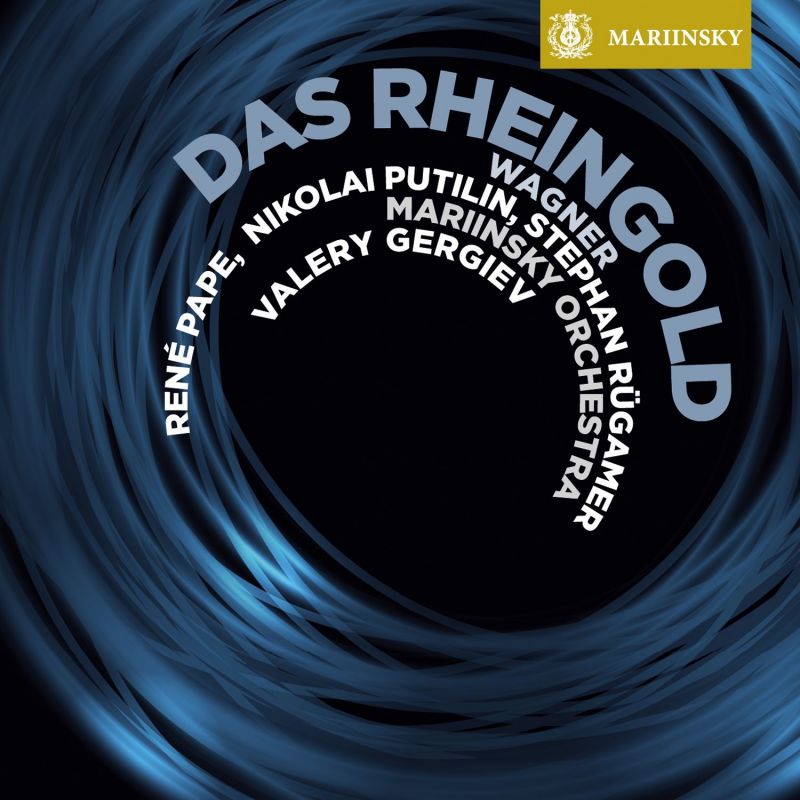WAGNER Das Rheingold
Gergiev’s Mariinsky Rheingold from seven days of sessions
View record and artist detailsRecord and Artist Details
Composer or Director: Richard Wagner
Genre:
Opera
Label: Mariinsky
Magazine Review Date: 11/2013
Media Format: Super Audio CD
Media Runtime: 147
Mastering:
DDD
Catalogue Number: MAR0526

Tracks:
| Composition | Artist Credit |
|---|---|
| (Der) Ring des Nibelungen: Part 1, '(Das) Rheingold' |
Richard Wagner, Composer
Alexei Markov, Donner, Baritone Andrei Popov, Mime, Tenor Ekaterina Gubanova, Fricka, Mezzo soprano Ekaterina Sergeeva, Flosshilde, Mezzo soprano Evgeny Nikitin, Fasolt, Baritone Irina Vasilieva, Wellgunde, Soprano Mariinsky Orchestra Mikhail Petrenko, Fafner, Bass Nikolai Putilin, Alberich, Baritone René Pape, Wotan, Bass Richard Wagner, Composer Sergei Semishkur, Froh, Tenor Stephan Rügamer, Loge, Tenor Valery Gergiev, Conductor Viktoria Yastrebova, Freia, Soprano Zhanna Dombrovskaya, Woglinde, Soprano Zlata Bulycheva, Erda, Mezzo soprano |
Author: Arnold Whittall
a vividly theatrical atmosphere is created; so much so that the absence of sound effects of the kind an actual staging would involve can seem positively surreal.
In Die Walküre, Mike Ashman noted that, as Wotan, René Pape ‘seems obsessed with remaining noble; he never sounds angry…or bitter’. In Das Rheingold Pape might well have quailed at the thought of appearing alongside three of the Mariinsky’s most formidable bass-baritones – four if Donner is included – and although his superbly well-sung performance is far from monotonously dignified, Pape wisely avoids the histrionic extremes of Nikolai Putilin’s Alberich. Putlin’s anguished outburst during the early stages of scene 4 is electrifying on first hearing but will probably pall on repetition; and Mime, too, is less plaintively downbeat than usual. But there are no weak links in this cast: Fricka, Loge, Fasolt and Fafner are all as good as any of the recently recorded rivals you might care to name, and enunciation of the German text is, with only occasional exceptions, appropriately idiomatic.
What Mike Ashman hears as ‘the decidedly un Western sound of Gergiev and his orchestra’ remains a feature here, and, as with Walküre, ‘a dramatic advantage to this opera’s tense underlay’, not just when the brass are given their head, but with some unusually vibrant string textures. Gergiev usually avoids the more extravagant reining-back of momentum in which he has indulged in the past, though the entry of the giants in scene 2 is exceptionally slow and as a result risks comical exaggeration. Nevertheless, the uniquely euphoric spirit of The Ring’s prelude emerges with irresistible conviction as the compelling drama unfolds.
Discover the world's largest classical music catalogue with Presto Music.

Gramophone Digital Club
- Digital Edition
- Digital Archive
- Reviews Database
- Full website access
From £8.75 / month
Subscribe
Gramophone Full Club
- Print Edition
- Digital Edition
- Digital Archive
- Reviews Database
- Full website access
From £11.00 / month
Subscribe
If you are a library, university or other organisation that would be interested in an institutional subscription to Gramophone please click here for further information.




